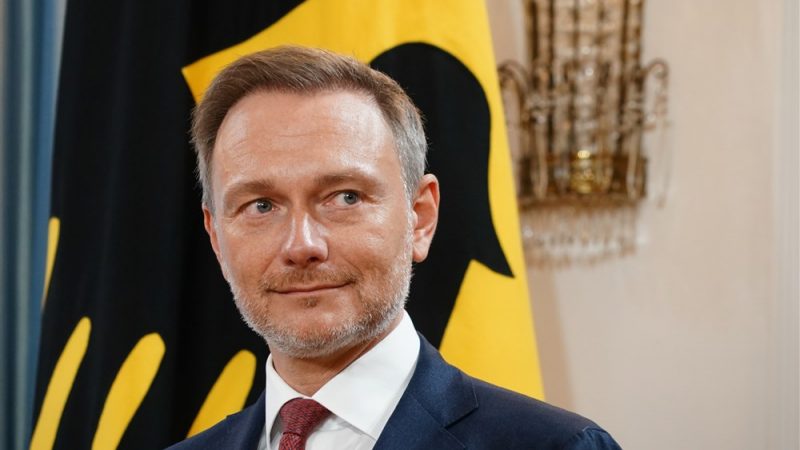By Jonathan Packroff | EURACTIV.de
Content Type:
News Based on facts, either observed and verified directly by the reporter, or reported and verified from knowledgeable sources.
03-04-2023 (updated: 03-04-2023 )
For families with children “a lot has happened already”, Lindner (FDP) said on Sunday, putting into question the jointly agreed “Kindergrundsicherung” (Children’s basic income) project of the three-party government. [EPA-EFE/CLEMENS BILAN]
There is no money left to increase child benefits as agreed among governing parties, German Finance Minister Christian Lindner (FDP) said, even though tax revenues are expected to reach €1 trillion for the first time in 2024.
His priorities would be renewing transport and digital infrastructure, strengthening the military, as well as supporting research and business investments, Lindner told Bild am Sonntag on Sunday.
Other projects would be “desirable but not feasible at the moment,” Lindner said. This would include the €12 billion child benefit programme developed by German Family Minister Lisa Paus (Greens).
The government agreed on a package to speed up planning and permitting procedures for infrastructure projects last week, including railway and motorway projects and renewable energy. To finance additional investments in the railway network, the toll for goods transported by trucks should be increased based on their CO2 emissions as of January 2024.
The federal government is also expected to use €10 billion of public money to invest in stock markets for the first time to stabilise its pay-as-you-go pension system by expanding it with a capital-based pillar.
For families with children, in contrast, “a lot has happened already”, Lindner (FDP) said on Sunday, putting into question the jointly agreed “Kindergrundsicherung” (Children’s basic income) project of the three-party government.
“We want to lift more children out of poverty, will create better opportunities for children and young people with the children’s basic income scheme and focus on those who need the most support,” the 2021 coalition agreement between Chancellor Olaf Scholz’s social democrats, Paus’ Greens and Lindner’s liberal FDP party had read.
For that purpose, the scheme was meant to bundle all existing child benefits into a scheme partly based on parents’ income. The other part was a “guarantee contribution” paid automatically to all parents.
“This benefit is to reach the children directly without bureaucratic hurdles and secure their socio-cultural subsistence level, which is to be redefined,” the coalition agreement had said.
Green politicians criticised Lindner’s statement as the fight against child poverty was a “task for society as a whole, to which Mr Lindner should also feel committed,” Maria Klein-Schmeink, deputy head of the Green group in the German parliament, told AFP.
“The Children’s basic income will come in any case” and is supposed to start in 2025, Katja Mast of the leading government party SPD told radio Deutschlandfunk on Friday.
The draft budget for 2024 should be ready in June, Lindner said, before it is sent to the EU Commission for scrutiny under the so-called European Semester. Lindner said that for the first time in history, German tax revenues would reach a total of over €1 trillion next year.
(Jonathan Packroff | EURACTIV.de)

